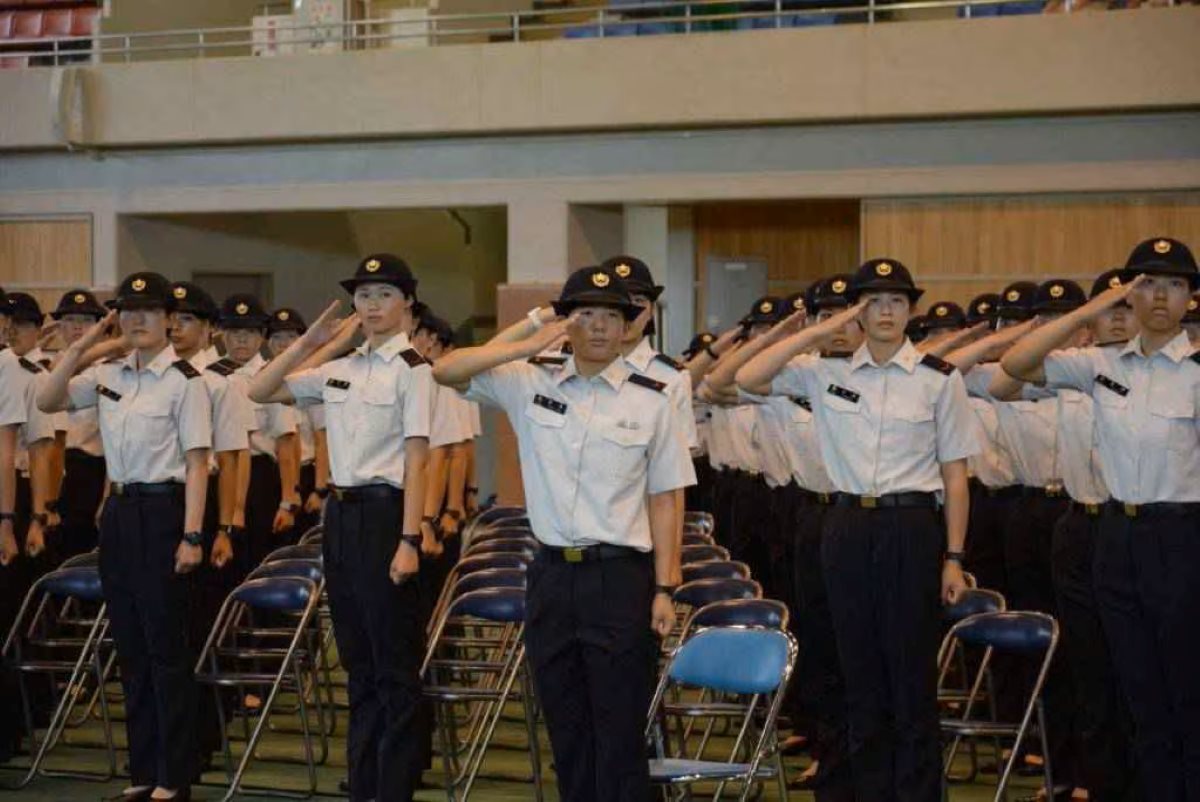Your cart is currently empty!

Williams Brown
Lorem ipsum dolor sit amet, consectetur adipisicing elit. Dolor, alias aspernatur quam voluptates sint, dolore doloribus voluptas labore temporibus earum eveniet, reiciendis.
Latest Posts
- Democrat at center of Kilmar Abrego Garcia saga responds to angel mom Patty Morin
- Secret Service Director Sean Curran offers behind-the-scenes look at what it takes to become an agent
- Girl, 14, killed by lion in Kenya
- Calls for US action amid growing violence against Christians in Nigeria
- Pope wishes worshippers Happy Easter after serious illness
Categories
Archive
Tags
Social Links

このページを
日本語 で読む
The Japan Self-Defense Forces (JSDF), long seen as a male-dominated institution, is undergoing change. One in five new recruits is now a woman, and female personnel have become “indispensable,” according to Defense Minister Gen Nakatani. With the lifting of assignment restrictions, women are now serving in front-line roles, including on fighter jets and escort vessels.
Key Initiatives
- Removal of assignment restrictions, allowing women to work in nearly all fields
- Establishment of childcare facilities at garrisons to support work-life balance
- Goal to increase female officers at the rank of lieutenant colonel or above to at least 5% by fiscal year 2025.
20% of New Recruits Women
“Approach your duties with a keen awareness of what needs to be done, and take decisive action without hesitation.”
This was the message delivered on January 14 by Vice Admiral Natsue Kondo, Commander of the Ominato Regional District. Kondo was addressing about 150 personnel at the Japan Maritime Self-Defense Force‘s (JMSDF) Ominato Base in Mutsu, Aomori Prefecture.
In December 2023, Kondo was promoted to Vice Admiral, becoming the highest-ranking female officer in the JMSDF. She is the first woman to attain the rank of General in any branch of the JSDF — Ground, Maritime, or Air.
As of fiscal year 2023, approximately 20,000 women served in the JSDF, accounting for 8.9% of all personnel. The percentage of female recruits has risen steadily, reaching 18% in 2023 — double the figure from a decade ago.
This increase is due not only to expanded recruitment quotas but also to the removal of assignment restrictions. Previously, women were barred from combat-related roles, but the JSDF gradually opened these positions, starting in 1993.

Ability, Not Gender
However, progress has not been without obstacles. When discussions began within the Japan Air Self-Defense Force (JASDF) about allowing women to become fighter pilots, some senior officers voiced opposition. They argued that “the public would not accept the sight of female prisoners of war.”
Lieutenant Colonel Yukari Yoshida, 51, who worked to lift these restrictions, commented on the issue. “If someone has the ability, aptitude, and motivation, they should be given the opportunity, regardless of gender,” she stated.
Yoshida conducted surveys across JASDF flight squadrons to gauge opinions on the restriction. She also researched policies in other military forces and ultimately succeeded in getting the ban lifted.
As a member of the first class of female cadets at the National Defense Academy, Yoshida notes, “Both institutional policies and physical infrastructure have changed significantly.”
The JSDF has invested in childcare and eldercare support facilities at its bases, helping personnel balance work and family responsibilities. These changes not only benefit female personnel but also improve the work environment for men, strengthening the entire force.

Addressing Harassment
A sexual assault case in 2022, involving former Ground Self-Defense Force (GSDF) member Rina Gonoi, came to light. In response, the MOD conducted surveys to uncover additional cases and implement preventative measures. However, harassment remains a persistent issue.
The ministry aims to increase the proportion of female officers at the rank of lieutenant colonel or higher to at least 5% by fiscal year 2025. As of 2023, the figure stood at 4.4%. A JSDF senior official stated, “If more women participate in decision-making, harassment prevention measures would likely become more effective.”
Eliminating harassment and enhancing the JSDF’s appeal are crucial to counteracting its overall declining recruitment numbers. The organization’s efforts to evolve continue.
RELATED:
Author: Shusuke Takenouchi, The Sankei Shimbun
このページを
日本語 で読む

